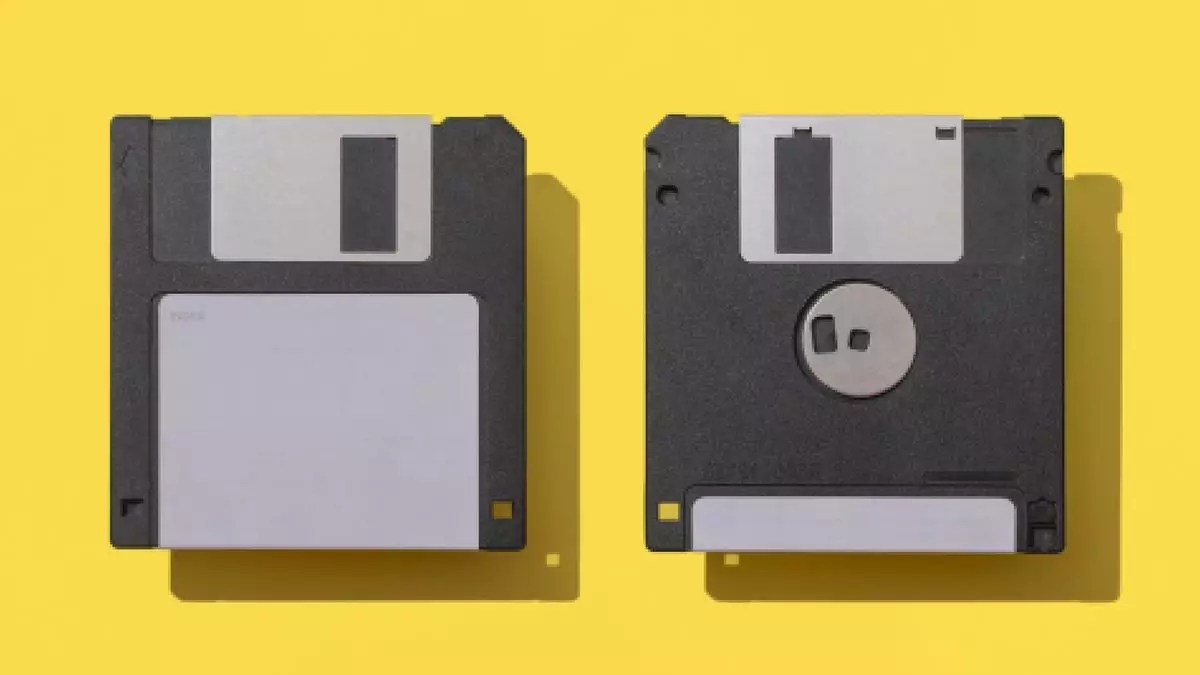The nostalgia-inducing sound of a floppy disk drive crunching away may evoke memories of a time long past for many individuals. However, the San Francisco Municipal Transportation Agency (SFMTA) has brought this outdated technology back into the spotlight by revealing its reliance on three 5.25-inch floppy disks to load software for running the central servers of its Muni Metro light rail line. This revelation sheds light on the surprising endurance of floppy disks in critical systems, despite the widespread belief that they had long been retired from service.
While the SFMTA’s floppy disk-based train control system may have been functioning adequately so far, the agency recognizes the looming risks associated with relying on such obsolete technology. Jeffrey Tumlin, the agency’s director of transportation, emphasizes the growing threat of data degradation and the potential for catastrophic failure due to the aging floppy disks. As these disks reach the end of their projected lifespan and face the inevitability of deterioration, the SFMTA is confronted with the urgent need to modernize its systems before disaster strikes.
The case of the SFMTA’s continued use of floppy disks serves as a stark reminder of the consequences of failing to keep pace with technological advancements. In an era dominated by cloud computing, solid-state storage, and high-speed connectivity, the reliance on floppy disks for critical operations seems not only archaic but also highly risky. The mere existence of these disks in essential infrastructure highlights the need for continuous innovation and upgrades to avoid being left behind in an increasingly digital world.
The SFMTA’s situation is not an isolated incident, as other industries have also been caught off guard by the persistence of outdated technology in crucial systems. From Boeing’s use of 3.5-inch floppy disks in its aircraft to the US nuclear arsenal’s reliance on similar technology until recently, the prevalence of floppy disks in unexpected places underscores the widespread challenges posed by technological obsolescence. As society races towards a future driven by artificial intelligence, automation, and interconnectedness, the need to retire outdated systems becomes more pressing than ever.
Despite the odds stacked against them, floppy disks continue to defy obsolescence and maintain a presence in modern-day operations. The longevity of these magnetic storage devices, originally designed for temporary data storage, is a testament to their resilience and enduring appeal. While the era of floppy disks may be on the verge of extinction, their unexpected survival in critical infrastructure showcases their adaptability and staying power in an ever-changing technological landscape.
The saga of the SFMTA’s reliance on floppy disks serves as a cautionary tale for organizations and industries grappling with the challenges of technological evolution. As we bid farewell to the era of floppy disks, let us reflect on the lessons learned from their enduring legacy and strive towards embracing innovation and progress in all aspects of our digital lives. The time has come to let go of the past and embrace the future, free from the constraints of outdated technology.


Leave a Reply